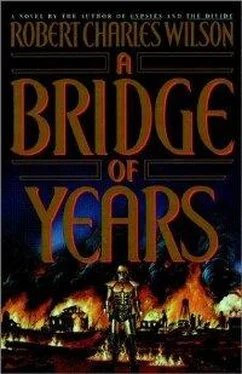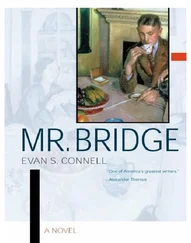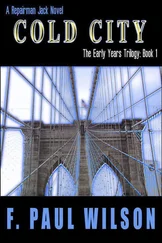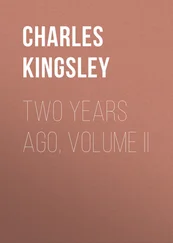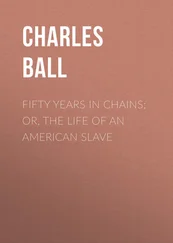Before he left the apartment he looked at himself in the chipped bathroom mirror.
The black headset with its calibrated goggles projected from the hood of his sweatshirt like the muzzle of an animal.
A rat, Billy thought. He looked like some kind of leathery, robotic sewer rat attempting to pass for human. I look like someone’s nightmare.
The thought was disquieting. It troubled him until he activated the armor’s lancet; then everything was simple, everything was clear.
He kept to the shadows.
He tuned his eyepiece to the radiant frequency of the tunnel dust. He was able to follow his own footprints—a faintly blue, faintly luminous path—back to the building near Tompkins Square.
The lobby of the building was alive, starry with ghostlight.
But the intruder had come through here long ago and there was no clear trail to follow. Well, Billy had expected that. There had been rain since then; there had been wind, air pollution, foot traffic, a thousand scatterings and adulterations.
He stood in the street outside the building. Faint blue light glimmered here and there. A brush of it adhered to a lamppost. A scatter of it stood like snow crystals along the filthy curb.
No trail, only clues: dim, ambiguous.
He looked up at the building, dark except for Mr. Shank’s apartment. Amos Shank chose that moment to pull back his blinds—awake in some delirium of creativity—and Billy gazed up calmly at him. Mr. Shank returned his look for one long breathless moment … then pulled away from the window; and the blinds slashed down again.
Billy smiled.
What did you see, Mr. Shank? What do you think I am, out here in the lonely dark?
Billy imagined himself old and senile in 1962, lost in a dream of antiquity and Napoleonic Europe, peering from his slum apartment into a nighttime world inhabited by monstrosities.
Why, Billy thought, I must look like Death.
Good guess, Mr. Shank.
Billy laughed quietly and turned away.
He moved in a crude spiral away from the tunnel, avoiding Fifth Avenue and the late-night crowds in the Village, hoping for some substantial clue, an arrow of blue light, that would lead him to the intruder.
He found none. He found traces of the dust here and there almost at random—a big deposit clinging to an oil slick at Ninth and University Place, a smaller one smudged into the yellow grass at the foot of a bench in Washington Square Park. Billy lingered at the bench a moment, but there was nothing coherent, only a suggestion that his prey had passed this way. He frowned and decided to move south, avoiding the west side of the park where a few hustlers and homosexuals still lingered in the darkness. That part of the park was a familiar hunting ground when his armor needed a killing— like Times Square and Union Square at night, places where disposable nonpersons gathered. Billy’s armor wanted a killing now; but there wasn’t time and he suppressed the urge.
He paused a moment, adjusted his opticals and gazed up at the sky.
Ordinarily the city sky was featureless, but Billy’s opticals showed him too many stars to count. It was like an Ohio sky, Billy thought.
He felt a sudden pang of longing, so intense it worried him. The armor was pumping out complex neurochemicals to make him alert, to help him hunt—to keep him alive. There shouldn’t have been room for nostalgia. Unless the elytra or the lancet or the strange, false gland in the armor had begun to fail.
But they hadn’t, really; or if they had, the effect was purely transient. Billy sat on a park bench until the pang of homesickness faded. Then the sky was only the sky, clean and blank of meaning. He retuned his opticals and crossed the empty space of Washington Square South at Sullivan, hunting.
And came up empty. And sweated through another day.
In the early evening he went out without his armor to wander the busy streets of the Village. He sat for a time on the terrace at the Cafe Figaro, mistaken by its regulars for one more middle-aged tourist, wondering whether the intruder had strolled past him in the crowd or might even be sitting at the next table, smug with thirty years’ worth of cheap prescience. Or might after all have left the city: that was still a real possibility. In which case Billy’s prey would be hopelessly beyond reach, no trace of him but a residue of fading phosphorescence.
But Billy hadn’t given up yet.
He went home, donned the armor, wandered toward mid-town in a ragged pattern for three hours without result.
He finished the night without killing anything—a profound disappointment.
And dreamed of blue light.
Three nights later, ranging west along Eighth Street, he discovered a smoky luminescence around the doorway and interior of a tiny retail shop called Lindner’s Radio Supply. Billy smiled to himself, and went home, and slept.
He woke in the heat of the afternoon.
He put on his golden armor, activated the lancet, and dressed to conceal himself. He didn’t wear the headset; today he didn’t need it.
He felt a little strange, going outside in daylight.
He walked to Lindner’s in his overcoat, attracting a few stares but nothing more. He paused on the sidewalk in front of the store and pressed his face against the window.
It wasn’t a big store, but business seemed reasonably good. There was a hi-fi set in the window bristling with vacuum tubes, a hand-lettered card announcing the word STEREOPHONIC! Beyond that, in the dimness, an old man stood patiently behind a wooden counter. Billy felt a tinge of disappointment: was this feeble thing his prey?
Maybe. Maybe not. It was too soon to say.
He crossed the street to a delicatessen, ordered a ham sandwich and coffee, and occupied a table by the window.
Lindner’s was moderately busy. People came, people went. Any of them might be the intruder. But Billy guessed from the smoky nimbus of the glow last night that the man had come here often. The dust—by this time a few motes still clinging to his shoes or cuffs—could only have been deposited by repeated traffic. Probably he’s an employee, Billy thought. A deliveryman, say, or a sales assistant.
The sandwich was very good. He hadn’t eaten much for days. He bought a second one, a second coffee. He ate slowly and watched the traffic in and out of Lindner’s.
He counted fifteen individuals in and fifteen individuals out, all of them customers, Billy guessed. Then a truck pulled up to the curb and a sweating man in a blue shirt unloaded three cardboard boxes on a dolly. Billy watched with heightened interest: here was a possibility. There was no way to follow the truck, but he made a note of the license number and the name of the distribution company.
And continued to watch.
A little after four o’clock the counterman at the deli approached his table. “You can’t just sit here. This is for paying customers.”
The place was nearly empty. Billy slid a ten-dollar bill across the table and said, “I’d like another coffee. Keep the change.” Thinking, If I wanted to kill you I could do it right now.
The counterman looked at the money, looked at Billy. He frowned and came back with the coffee. Cold coffee in a greasy cup.
“Thank you,” Billy said. “You’re welcome. I think.”
The last customer left Lindner’s at five-fifteen; the store was scheduled to close at six. Billy divided his attention between the storefront and the clock on the deli wall. By six, his focus was intense and feverish.
He watched as the old man—the proprietor, Billy guessed —ambled to the door with a key ring in his hand and turned the sign around to show the word CLOSED.
Billy left his table at the deli and moved into the street.
Читать дальше
